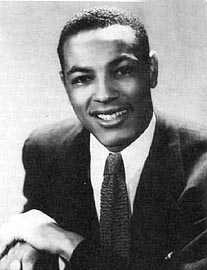William Attaway
| William Attaway | |
|---|---|
 |
|
| Born | William Alexander Attaway November 19, 1911 Greenville, Mississippi United States |
| Died | June 17, 1986 (aged 74) Los Angeles, California, United States |
| Occupation | Novelist, short story writer, essayist |
| Period | 1935–1967 |
| Genre | Proletarian literature |
| Notable works | Blood on the Forge, "Banana Boat Song" |
William Alexander Attaway (November 19, 1911 – June 17, 1986) was an African-American novelist, short story writer, essayist, songwriter, playwright, and screenwriter.
Attaway was born on November 19, 1911, in Greenville, Mississippi, the son of W.A. Attaway, a physician and founder of the National Negro Insurance Association, and Florence Parry Attaway, a school teacher. When Attaway was six, he moved with his family moved to Chicago, Illinois, as part of the Great Migration, to escape the segregated South.
In Chicago, Attaway showed little interest in school until he was assigned a poem written by Langston Hughes. Once he learned that Hughes was a black poet, Attaway decided to start applying himself to his school work. He even enjoyed writing so much that he wrote for his sister Ruth’s amateur dramatic groups.
After graduating from high school, Attaway enrolled at the University of Illinois. There, he was a tennis college champion. Even though he was doing well at college, upon his father’s death Attaway dropped out and became a traveling worker for two years. During these years he worked as a salesman, a labor organizer, and a seaman, and began to collect material for his later works.
After getting his B.A. (1935) from the University of Illinois and having published "The Tale of the Blackamoor" in Challenge, he traveled around the US before settling into New York City.
Attaway was married in 1962 to a woman named Frances Settele. They lived in Barbados for eleven years with their two children Bill and Noelle. Frances Attaway was a white woman originally from New York. They had a 20 years-long courtship before going public and official with their union as racial tension was present until the 1960s. Despite the MLK civil rights movement, Frances and William moved their family to the Caribbean to escape racial turmoil and death threats. Frances and William had two children, Noelle and William.
William Attaway's daughter, Noelle, even recalls records of Martin Luther King, Jr calling William Attaway " a fellow freedom fighter" and both marched side by side during the civil rights movement.
...
Wikipedia
